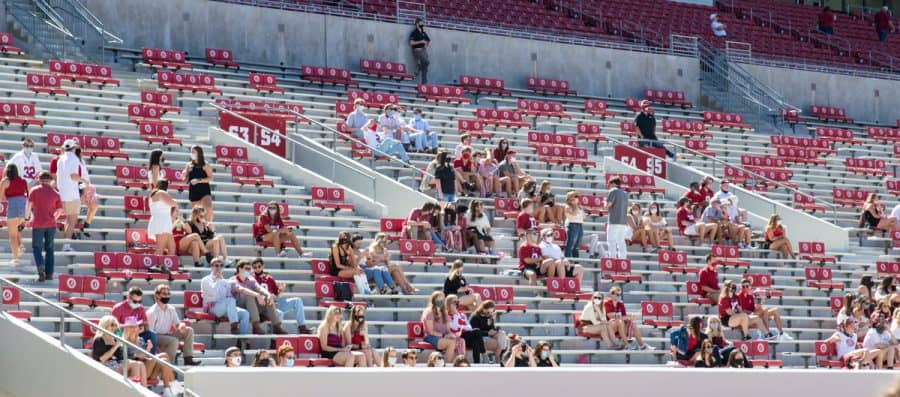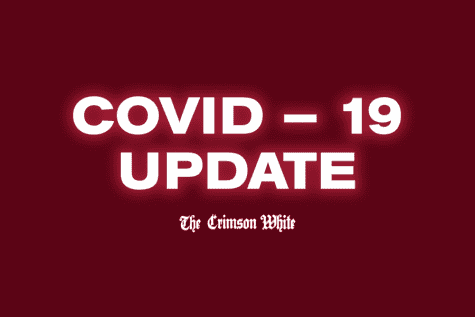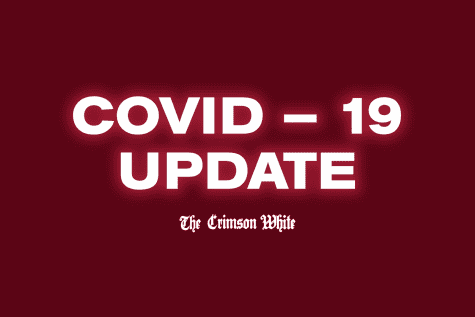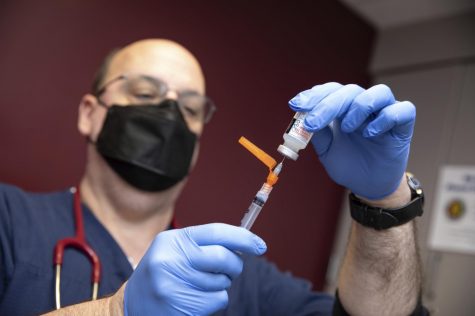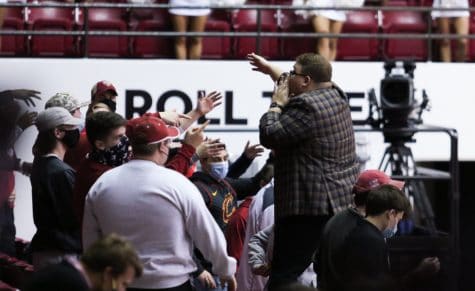How freshmen are adapting to a new kind of campus life
October 21, 2020
For some, “the freshman experience” might mean living in on-campus housing or sitting in the upper bowl at football games, while for others, it might mean being independent and having to do laundry alone for the first time.
But in the wake of COVID-19, the class of 2024 is going to remember their freshman year for very different reasons. In March of 2020, schools throughout the nation began closing their doors in fear of the unknown. For many students of the class of 2020, this meant their senior year of high school was over far too early. These students were not able to properly say goodbye to teachers and friends or go to senior prom, and many were not able to walk the stage at graduation in front of their loved ones to receive their diploma for all their hard work.
In the midst of all these lost last moments and sadness, there seemed to be a light at the end of the tunnel: on June 15, 2020, The University of Alabama published its plan to have students return to campus for the Fall 2020 semester. Though being on campus was a much better option than having to Zoom into classes from across the country, incoming freshmen had no clue how different this semester would be from what they expected.
The change began with the University choosing to transfer Bama Bound from a two-day on-campus orientation experience to a module-based virtual course. This decision was not one made only by The University of Alabama; most colleges throughout the nation also chose to move freshman orientation to an online platform.
Avanti orientation leaders and others helping put together the 22-session summer-long event had to figure out how to prepare incoming students for the upcoming school year. The result was a series of online modules, with a few tailored to students’ specific colleges, as well as tests covering the material discussed in the modules.
For Emma Zang, a freshman majoring in communicative disorders, the two-day long, activity-filled orientation experience had turned into what seemed like summer schoolwork.
“Something felt off having to be welcomed to our college alone in my room through a pre-recorded video,” Zang said.
Though the University did the best it could given the circumstances, including giving those who completed the orientation official BamaBound T-shirts, some freshmen and incoming students felt as if they lost the experience of a true freshman orientation.
For Caitlin Garnett, a freshman majoring in public relations, it has been a struggle to establish relationships. Garnett stressed a huge part of the freshman experience is “finding your little community,” and she claimed that she does not have that community currently.
“Aside from my roommate, I have two other friends on campus, and Zoom isn’t helping me establish those relationships,” Garnett said. “And if classes are in-person, it’s all distant and doesn’t foster friendship building in my opinion … I know that it’s protocol and it’s for our safety, but I feel like I’ve missed out on those friendships because of everything.”
A major change in the freshman experience is the change in admittance to home football games. On Aug. 18 students received an email from UA Athletics explaining that though students will be able to attend home football games in person, there will be some major changes to receiving a ticket.
First, the distribution of tickets is broken down into a percentage system with seniors receiving 40%, juniors 20%, and sophomores and freshmen 15% of tickets. Students who opt-in online may receive a ticket based on credit hours and will only be able to attend two home games. Bryant-Denny Stadium will only operate at 20% capacity, with attendees spaced six feet apart.
While freshmen will still be sitting in the upper bowl, some have expressed that it will be odd to not be able to experience a full stadium this season.
Caitlin Pannell, a freshman majoring in secondary education, described how the limited capacity will impact students’ immersive experience throughout the 2020 college football season.
“I went to the Texas A&M game, and the experience still felt a little bit different,” she said. “Groups were spaced six feet apart by seat backs, and signs were everywhere reminding people to keep their masks on at all times. However, I think the biggest missing piece was the band not being able to play their half-time show… that felt kind of empty. Overall, though, it was still a great time, and I’m really glad we are still able to go to games.”

